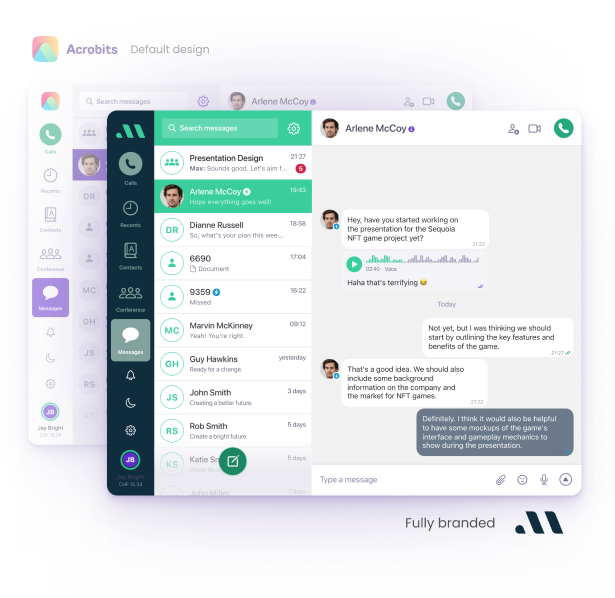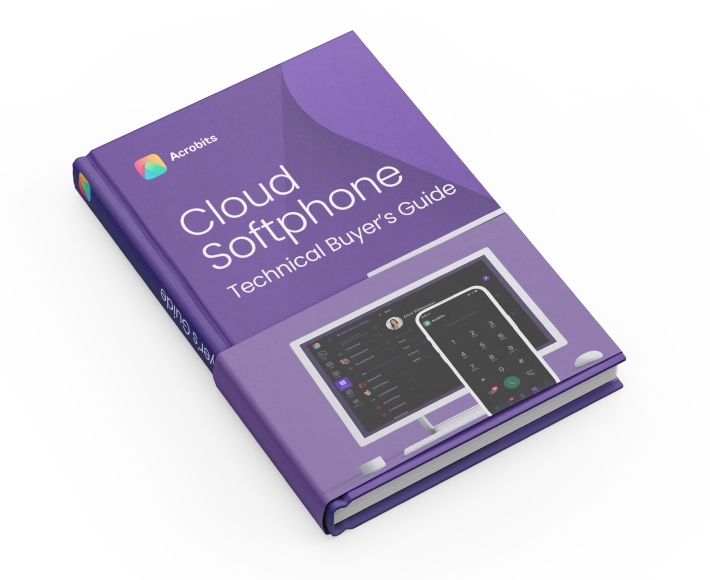Our partners are the lifeblood of our business, and we are constantly striving to understand their needs to improve every aspect of our products and SDK.
Since day one, Acrobits has taken pride in developing purpose-built solutions that cater to the unique needs of our partners, their industries, and their customers.
Mobile Heartbeat has been a valued partner to us for nearly 10 years, helping them continually grow and evolve their healthcare communications services. We’ve enabled them to tackle some of the healthcare industry’s biggest technology and data privacy challenges. Fast-forward to today and Acrobits continues to support Mobile Heartbeat in their mission to transform communications platforms in healthcare.
We recently sat down with Saji Aravind, CTO of Mobile Heartbeat, to discuss the history and future of their communications application. We learned how they have overcome unique challenges inherent to healthcare communications, as well as how they’re planning to lead the industry into the future.
Q: What problem does Mobile Heartbeat solve?
We solve one of the major problems of the healthcare industry, which is on-the-go communications. A lot of communication in healthcare is static and stationary. So, we brought mobile into the healthcare industry.
You can think of us like any other communication application. We tailored our solution specifically for healthcare; it’s not a generic platform.
We brought patient context into our platform, enabling caregivers to find and communicate with the right people easily. We focused on finding the person you’re looking for easily, and once found, how can users communicate with them.
You don’t always know everyone’s name in a hospital — which doctor or nurse is treating a specific patient. The providers are usually written on a whiteboard in the unit. People traveling or at home can’t see that.
So, our platform lets you click on the patient and talk to the people taking care of them. On-call specialists or unit secretaries are also available.
Q: How did you modernize healthcare communications?
We evolved from the needs of our users. Our software is built for use in the field, not in the office. We found that the number one thing in healthcare is reliability. So, reliability became our number one priority. If communication breaks down, we need to know why.
If I send you a message and you don’t get it, there’s a breakdown in providing patients with the right service. For example, this might mean a doctor was sending orders to a nurse, but they never received the message. If that happens, the sender needs to know.
We’ve integrated multiple ways to communicate. We offer text messaging and voice messaging. Customers using our platform expect calls to work the same as normal calls. They don’t want to hear about limitations with VoIP calls; they need the same quality as a normal call.
Q: Are healthcare facilities’ networks sufficient for voice calls today?
When we first started, all VoIP calls were wired, which is more dependable. When it comes to mobile, it’s not uncommon to experience packet noise and other issues.
“Walk and talk” was the biggest challenge we needed to solve. When we started Mobile Heartbeat, we were alone. We found ourselves building the application and improving facilities’ networks. First, we had to upgrade the network that used data packets at the same time. Then, we created dedicated voice lines.
We had to teach healthcare IT departments about how to upgrade their networks. Some would ask, “why not just put 1,000 access points?” We had to explain that the problem was roaming itself — moving from access point to access point.

Q: Beyond Acrobits, were there other partners that helped Mobile Heartbeat grow?
In the beginning, we struggled to find a partner to work with. Everybody was just starting out in mobile VoIP communications. Our partners didn’t even know how to make this work. Thankfully, our software was good.
Once we got together with our parent company, they helped us get to where we are today. They were forward-thinking, and other companies took their lead.
We also had to ask ourselves one simple question: how many vendors do we really need? Healthcare is a challenging field. You need to consider cybersecurity vendors, access point vendors, PBX vendors, MDM vendors, and more. There are so many moving pieces, and our parent company helped us get to where we are today.
Q: How do you continually improve your services?
We are a company that began primarily with engineering, which handled the development of the product. Now, we have an operation department that includes marketing and other operational needs.
Today, we have 250,000 monthly active users that depend on our continuous development. Our process is structured at this point. We follow agile combined with waterfall. We plan three months at a time and work towards those goals. The industry is moving too fast to plan a year ahead; we plan for three months at a time.
Acrobits has also been instrumental in our success, providing us with competitive features to help differentiate our product. With Acrobits, we have access to proven technology without the need to develop and support new features, updates, and other changes.
Q: How has Acrobits helped healthcare finally move to the cloud?
We always need to follow the industry, and now we are actually moving to the cloud. Healthcare is one of the last industries to move to the cloud for obvious privacy reasons, but we’re currently working on porting our services to the cloud. We are rewriting and reimagining our new version from scratch to match the new needs of the modern world.
Communications need to be reliable no matter what. If everything breaks down, is there still a way to communicate? How can we cut dependence on the Internet but still make communication work? That’s the direction we’re headed.
I believe Acrobits is the only one with the right technology that will allow us to achieve our goals. So, we’ll take Acrobits’ technology and put that into the phone itself, that way communication isn’t based on other systems.
It’s always good to have a partner that gets you, and that’s why Acrobits is a great partner. Sometimes it’s difficult to convey what you’re thinking, and it can take a long time to get that idea across. But, the moment we say something about an idea, you understand what we mean and create a feature for it.
We were worried about transitioning to the cloud, but Acrobits reduces the stress of the transition because it has solutions that give us the peace of mind needed to push forward.
Q: How would you describe your 10-year relationship with Acrobits?
We have a partnership; Acrobits is not just a vendor. You’re reliable, we can ask for something, and you deliver every time.
Acrobits is friendly and easy to communicate with, even though we are geographically far apart.
That’s what comes directly to my mind when I think about Acrobits.
Closing Thoughts
Acrobits is proud to help companies like Mobile Heartbeat bring white label softphone communications to essential industries like healthcare.
We have worked during our decade-long partnership to provide the right solutions to Mobile Heartbeat, so they can serve their customers with a reliable, feature-rich platform that is constantly evolving.

Build a white label softphone app
Create a custom white-label softphone with Cloud Softphone.
- No devs needed
- Native desktop apps
- 100+ premium features









